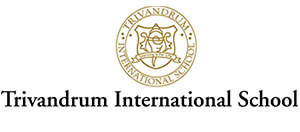Inclusive education is an ongoing process that aims to increase access and engagement in learning for all students by identifying and removing barriers. It stands for a multi-dimensional improvement of schools to address the educational needs of all children. Article 24 of the UN Convention on the rights of Persons with Disabilities (UNCRPD) recognizes the right of children with disabilities to education without discrimination and that they should be able to participate in the general education system.
In India, the Right to Education Act, 2009 became a milestone in inclusive education as it amended as a fundamental right to education for children up to the age of 14 years.
We, at TRINS, believe in a fully inclusive environment and strive to make sure students take part in all activities that they are physically and mentally capable of. We also recognize that some students may need differentiated studies to fit their learning needs; so that students of all ability levels are taught as equals, and that teachers adjust their curriculum and teaching methodologies for all students to benefit from. It also ensures that students with Special Educational Needs (SEN) are able to reach their full potential within a supportive educational environment that prepares them for an independent future.
These students require additional provision beyond what is provided in general classrooms, in order to benefit from the curriculum in the best way. Inclusive education ought to be incorporated into the current education system for developing the academic, communication and social interaction skills of a child with special needs,
At TRINS, we address the following individual needs;
- Communication and Speech difficulties
- Autism Spectrum Disorders (ASD)
- Attention Deficit Hyper Activity Disorder (ADHD)
- Physical, Sensory & Intellectual impairments
- Specific Learning Disabilities (SLD) or specific learning difficulty.
Eg: Dyslexia, Dysgraphia, and Dyscalculia - Slow Learners
Students with Special needs are provided access to the curriculum in the least restrictive environment. The faculty at TRINS is committed to including children with special needs. Students who fail to learn and progress within these arrangements and students whose overall attainment in particular areas of the curriculum fall significantly outside the expected range may have special educational needs. An Individual Education Plan (IEP) is developed for each student found eligible for services. All students experiencing academic or behaviour difficulties may not have a disability or may just require special education to meet their individual educational needs. We follow a need-based approach that responds to the severity or complexity of the needs of individual students.



